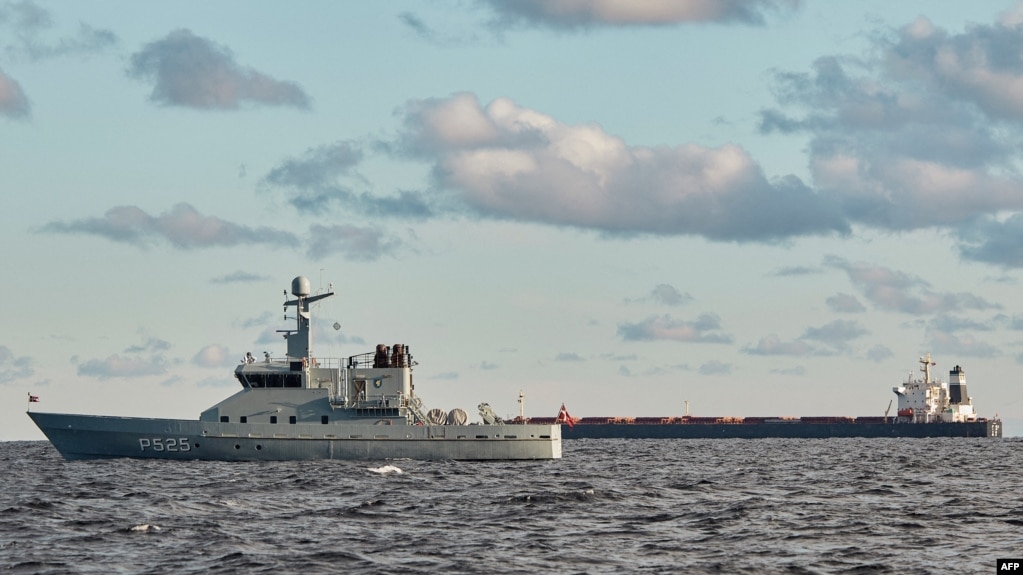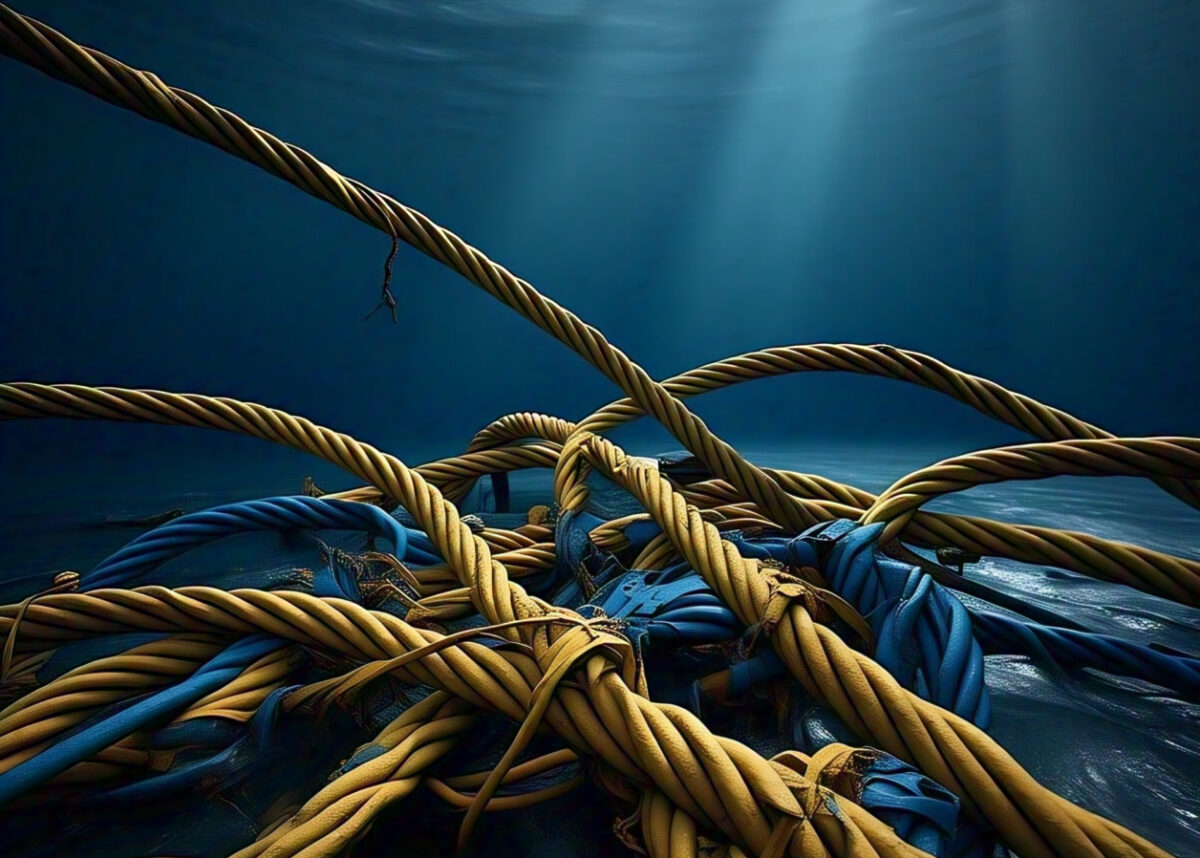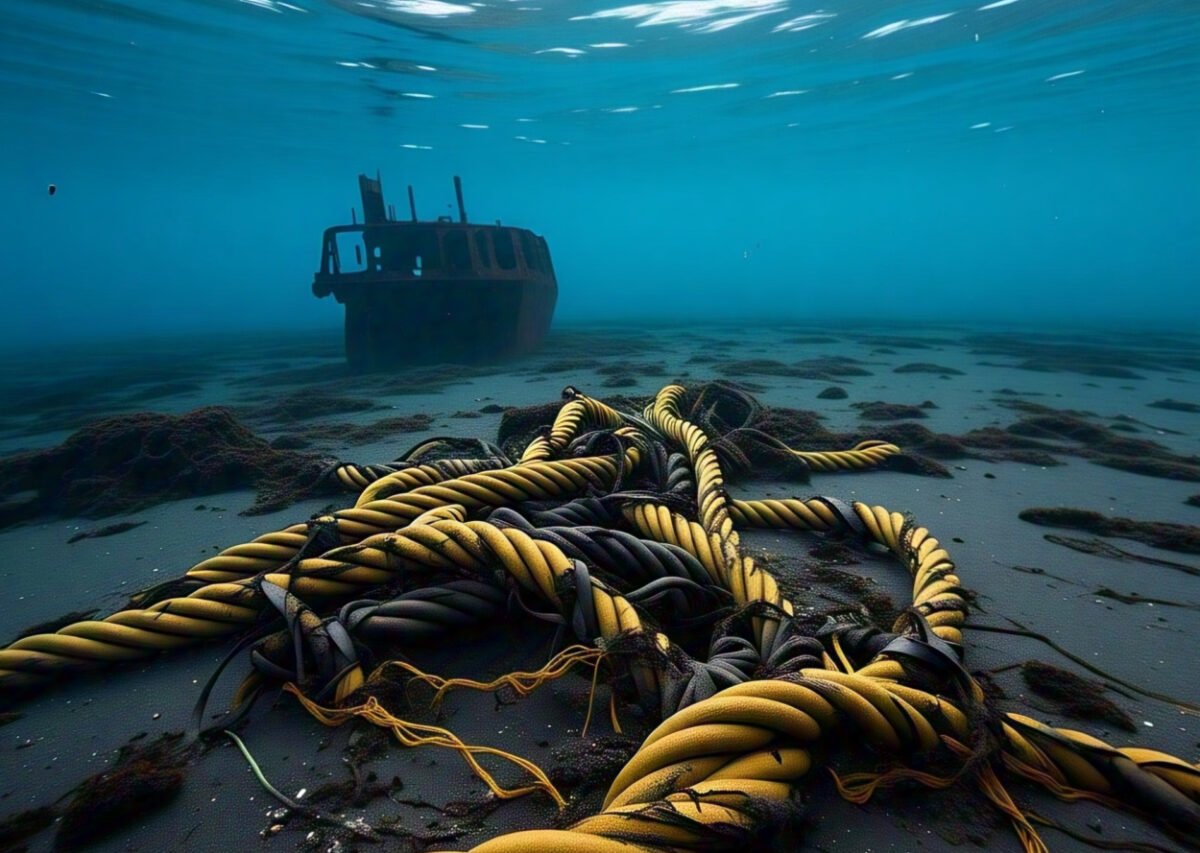The Baltic Sea submarine cables Sabotage
Recent days have witnessed escalating tensions in Europe following the sabotage of two critical Baltic Sea submarine cables communication cables in the Baltic Sea. This incident, under investigation by Finland, Sweden, Germany, and Lithuania, has raised serious concerns about the security of submarine infrastructure and its geopolitical ramifications. The Chinese cargo ship Yi Peng 3 has emerged as a focal point of suspicion, prompting discussions about potential hybrid warfare and China’s role in the incident.
Overview of the Incident
Between November 17 and 18, two major submarine cables were severed Baltic Sea submarine cables:
- C-Lion1 Cable: A vital 1,173-kilometer-long link between Finland and Germany, serving as the only direct data connection between Finland and Central Europe Baltic Sea submarine cables .
- BCS East-West Cable: Connecting Sweden and Lithuania, another essential communication line.
According to Finnish network operator Cinia, the disconnection of C-Lion1 could only have occurred due to external interference.
Investigations Launched
Finland and Sweden promptly initiated criminal investigations Baltic Sea submarine cables:
- Sweden: On November 21, prosecutors began a preliminary investigation into potential sabotage, deploying naval and Coast Guard resources for underwater searches.
- Finland: The National Bureau of Investigation charged the incident as serious criminal damage and interference with communications.
The Suspicious Behavior of Yi Peng 3
The Chinese cargo ship Yi Peng 3 has come under scrutiny due to its suspicious activity in the area at the time of the cable damage.
Key Events:
- The vessel departed from the Russian port of Ust-Luga on November 15.
- When passing through the affected area, it exhibited unusual behavior, including significant deceleration and an erratic route trajectory.
- On November 19, the Danish Navy intercepted the ship after hours of pursuit, raising questions about its intentions.
Yi Peng 3 is operated by Ningbo Yipeng Shipping Co., Ltd., a small company with only two ships, one of which was purchased shortly before the incident—a detail flagged as suspicious by investigators.
Expert Analysis
While the ship’s behavior raises questions, maritime experts caution against premature conclusions. Darren G. Spinck of the Henry Jackson Society’s Indo-Pacific Studies Center noted that despite circumstantial evidence, the presence of the ship alone does not confirm sabotage.
The Threat of Hybrid Warfare

The Baltic Sea cable sabotage underscores the potential for hybrid warfare, where malicious actors exploit gray zones of ambiguity to undermine national security.
European Leaders React
- German Defense Minister Boris Pistorius: Described the incident as “sabotage” and linked it to possible hybrid warfare tactics.
- Swedish Prime Minister Ulf Kristersson: Cautiously suggested sabotage but called for further investigation.
International Experts Weigh In
Dr. Emma Salisbury from the Seapower Lab at the Geostrategic Council emphasized the ambiguity inherent in hybrid warfare, where intent and responsibility remain difficult to discern. Pieter Cleppe, editor-in-chief of Brussels Report, highlighted the tactic’s effectiveness due to its murky attribution.
The Broader Geopolitical Context
This is not the first time Chinese ships have been implicated in damaging critical infrastructure in the Baltic Sea.
- Previous Incident: In 2023, the Chinese container ship Newnew Polar Bear reportedly damaged a natural gas pipeline between Finland and Estonia.
Comparing the two incidents, experts like Moritz Brake from the University of Bonn argue that such damage is unlikely to be accidental.
Implications for the EU
Security analysts suggest the EU and NATO need to strengthen undersea cable security and improve preparedness. However, taking direct action against China remains politically sensitive due to Europe’s trade dependence on the country.
Public Concerns About Infrastructure Security
The incident has sparked alarm among European citizens. Danish student Emma Cecilie shared her unease, noting increased warnings about emergency preparedness and the proximity of security threats to daily life.
“These incidents highlight the fragility of critical infrastructure and the potential for escalation in hybrid conflicts,” said Ben Knowles, a maritime law expert.
What Happens Next?
Ongoing Investigations
Authorities are conducting underwater inspections and data analysis to establish the cause of the cable damage and determine if the Yi Peng 3 played a deliberate role.
Potential Responses
- Sanctions: Experts like Dr. Sari Arho Havrén doubt that sanctions against China are likely, given Europe’s economic ties.
- Infrastructure Security: NATO and the EU are expected to prioritize bolstering undersea cable protection as a deterrent against future sabotage.
China and Russia Respond
- China: Denied any wrongdoing and emphasized its commitment to protecting submarine infrastructure.
- Russia: Called allegations of involvement “absurd.”
Conclusion
The Baltic Sea submarine cables sabotage represents a wake-up call for the international community, underscoring the vulnerability of critical infrastructure in an era of hybrid threats. Whether the incident was accidental or deliberate, it serves as a reminder of the need for coordinated efforts to safeguard global communication networks.
The coming months will reveal whether this incident was a targeted act of sabotage and how nations will adapt their strategies to address the complex challenges of gray-zone warfare.









Innovative concepts! The quantum noise reduction in Sprunki InCrediBox delivers studio-quality audio processing in browser-based applications.